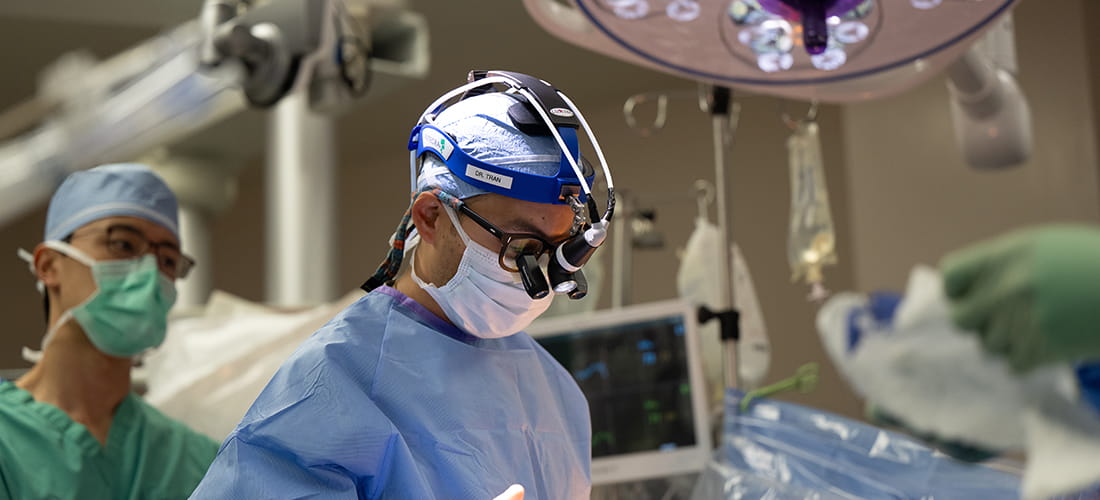Minimally Invasive Mitral Valve Surgery
Cardiac surgeons at Doylestown Health’s Woodall Center for Heart and Vascular Care perform a range of minimally invasive cardiac procedures, including minimally invasive mitral valve surgery. A minimally invasive cardiac procedure results in less complications, shorter hospital stays and quicker recovery times while maintaining the integrity of your sternum and chest wall.
How does minimally invasive mitral valve surgery work?
During a minimally invasive mitral valve surgery, your surgeon will fix an issue with your mitral valve or replace the valve with the assistance of a surgical robot. The mitral valve helps blood flow through your heart properly. You may need the procedure if you have a leaky or narrow mitral valve. Some conditions that could lead to mitral valve surgery include:
- Mitral valve regurgitation – occurs when one of the four valves in your heart doesn’t close tightly, which allows blood to flow in the wrong direction
- Mitral valve stenosis – is when the mitral valve opening is smaller than normal and blood can’t move from your upper to lower chamber
What happens in minimally invasive mitral valve surgery?
You will be placed on a heart-lung bypass machine to keep blood pumping throughout your body during a minimally invasive mitral valve surgery. Your surgeon will make a small incision in your chest and repair or replace the damaged valve. After the procedure, you will be removed from the bypass machine.
Am I a candidate for minimally invasive mitral valve surgery?
Not everyone is a candidate for minimally invasive mitral valve surgery. Whether you are a candidate depends on several factors, including:
- Your heart health
- Your health history – those with severe coronary artery disease or aortic valve disease may not be a candidate
- Your lifestyle – if you smoke or have a BMI of over 30, you may not be a good candidate
